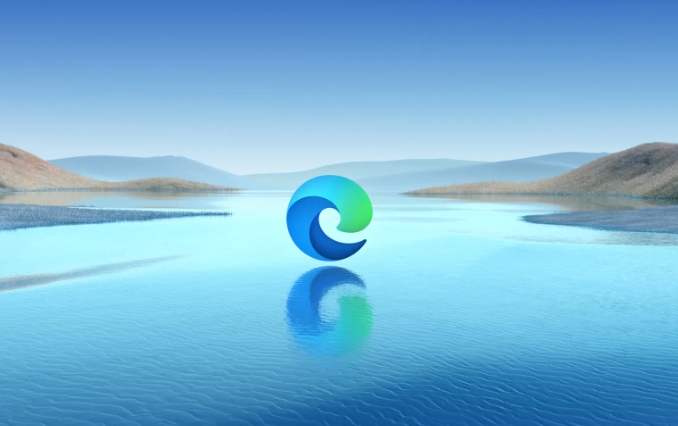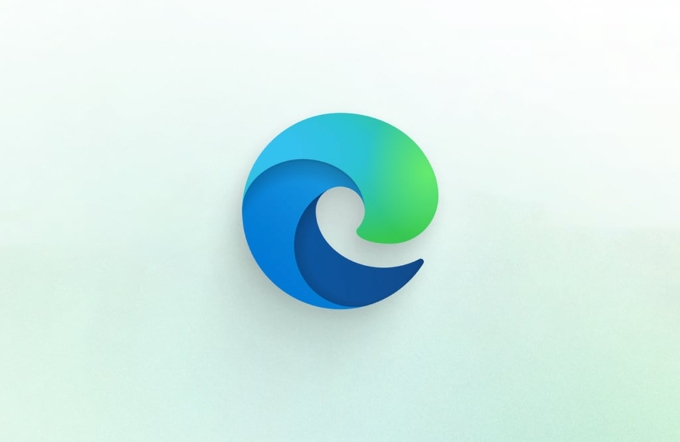Clear browsing data and cache to remove accumulated files slowing down Edge. 2. Disable or remove unnecessary extensions, especially outdated or resource-heavy ones, and test performance in InPrivate mode. 3. Adjust performance settings by enabling "Use less memory when inactive" and "Efficiency mode," and disable preload pages or animations if needed. 4. Update both Microsoft Edge and Windows 10 to ensure compatibility and optimal performance, with Windows 10 version 20H2 or later recommended. 5. Reset Edge to default settings to clear custom configurations and disable extensions without losing bookmarks or passwords. 6. Check for conflicting software like third-party antivirus or firewall tools that may interfere with Edge and consider switching to Windows Defender. 7. Toggle hardware acceleration off in settings to test if GPU-related issues are causing slowdowns, especially with outdated graphics drivers. 8. As a last resort, reinstall Microsoft Edge via PowerShell to reset the app to a clean state without affecting user data. Most Edge slowdowns on Windows 10 are caused by external factors rather than the browser itself, and following these steps in order typically resolves the issue completely.

If you're experiencing Microsoft Edge running slow on Windows 10, you're not alone — it's a common issue that can stem from various causes like accumulated cache, extensions, outdated software, or system-level conflicts. Here’s a practical breakdown of what might be causing the slowdown and how to fix it.

1. Clear Browsing Data and Cache
Over time, Edge accumulates cookies, cached files, and browsing history that can slow it down.
How to fix:

- Open Edge.
- Click the three dots (?) in the top-right corner.
- Go to Settings > Privacy, search, and services.
- Under Clear browsing data, click Choose what to clear.
- Select Cached images and files, Cookies and other site data, and Browsing history.
- Click Clear now.
Pro tip: Enable "Always clear this when I close the browser" for cache and cookies to prevent future buildup.
2. Disable or Remove Unnecessary Extensions
Extensions can significantly impact performance, especially if they run in the background.

What to do:
- In Edge, go to Settings > Extensions.
- Review installed extensions — disable or remove any you don’t use.
- Pay attention to ad blockers, password managers, or toolbars that may be outdated.
Try running Edge in InPrivate mode (Ctrl Shift N), which disables extensions by default. If it’s faster there, an extension is likely the culprit.
3. Turn Off Performance-Heavy Settings
Edge has some visual features that look nice but can slow things down on older or low-end machines.
Adjust these:
- Go to Settings > System and performance.
- Turn on "Use less memory when inactive".
- Toggle on "Efficiency mode" (if available).
- Optionally, disable "Preload pages for faster browsing" if you suspect it’s using too many resources.
Also, under Appearance, disable animations or background themes if you're on a slower PC.
4. Update Edge and Windows 10
An outdated browser or OS can cause compatibility and performance issues.
Check for updates:
- For Edge: Go to Settings > About Microsoft Edge — it will auto-check and update.
- For Windows 10: Go to Settings > Update & Security > Windows Update > Check for updates.
Make sure you're on at least Windows 10 version 20H2 or later for optimal Edge performance.
5. Reset Edge to Default Settings
If the above doesn’t help, reset Edge entirely.
Steps:
- Go to Settings > Reset settings.
- Click Restore settings to their default values.
- Confirm with Reset.
This clears custom settings, disables extensions, and resets startup pages, search engine, and pinned tabs — but won’t delete saved passwords or bookmarks.
6. Check for Conflicting Software
Antivirus, firewalls, or other third-party security tools can interfere with Edge.
- Temporarily disable your antivirus or firewall and test Edge speed.
- Look for software like McAfee, Norton, or older toolbars — these often inject into browsers and slow them down.
- Consider switching to Windows Defender, which is lightweight and well-integrated.
7. Hardware Acceleration Issues
Sometimes, Edge’s use of GPU acceleration can backfire on certain systems.
Try toggling it:
- Go to Settings > System and performance.
- Find "Use hardware acceleration when available".
- Turn it off, then restart Edge.
- Test performance. If better, leave it off. If worse, turn it back on.
This setting depends on your graphics drivers — outdated GPU drivers can make hardware acceleration problematic.
8. Reinstall Microsoft Edge (Last Resort)
If Edge is still slow, you can reinstall it via PowerShell (yes, even though it's built-in).
Reinstall steps:
- Open PowerShell as Administrator.
- Type:
Get-AppxPackage -allusers Microsoft.MicrosoftEdge | Foreach {Add-AppxPackage -DisableDevelopmentMode -Register "$($_.InstallLocation)\AppXManifest.xml"} - Press Enter — this re-registers Edge.
Note: This won’t affect your data, but it resets the app to a clean state.
Final Thoughts
Edge running slow on Windows 10 is usually fixable without drastic measures. Start with clearing cache and disabling extensions — that solves the issue 70% of the time. If not, work through updates, settings, and potential software conflicts.
Most of these fixes are quick and don’t require technical expertise. Give them a try in order, and you should see a noticeable improvement.
Basically, it's not Edge itself that's slow — it's usually the setup around it.
The above is the detailed content of edge running slow on windows 10. For more information, please follow other related articles on the PHP Chinese website!

Hot AI Tools

Undress AI Tool
Undress images for free

Undresser.AI Undress
AI-powered app for creating realistic nude photos

AI Clothes Remover
Online AI tool for removing clothes from photos.

Clothoff.io
AI clothes remover

Video Face Swap
Swap faces in any video effortlessly with our completely free AI face swap tool!

Hot Article

Hot Tools

Notepad++7.3.1
Easy-to-use and free code editor

SublimeText3 Chinese version
Chinese version, very easy to use

Zend Studio 13.0.1
Powerful PHP integrated development environment

Dreamweaver CS6
Visual web development tools

SublimeText3 Mac version
God-level code editing software (SublimeText3)

Hot Topics
 How does IDM extend to the browser? How to add IDM extension to browser
Apr 10, 2024 pm 04:19 PM
How does IDM extend to the browser? How to add IDM extension to browser
Apr 10, 2024 pm 04:19 PM
How to extend IDM to browser? In fact, generally speaking, if the user installs the IDM software in the default path, the IDM extension plug-in can be automatically installed on the default browser. However, if the plug-in cannot be installed, then you need to do it manually. Here I will introduce the browser to my friends. How to add IDM extension plug-in, I hope it will be helpful to you. Manually install the idm extension If the idm plug-in is not successfully installed in the browser due to operational errors, you can also install it manually through the following methods. Right-click the idm icon on the desktop and click "Open the location of the folder". In the installation directory of idm. Find ".crx" and ".ldq"
 How to set up automatic refresh in Edge browser
Apr 15, 2024 pm 02:55 PM
How to set up automatic refresh in Edge browser
Apr 15, 2024 pm 02:55 PM
Some friends need the Edge browser to automatically refresh itself, so how to set up the automatic refresh of the Edge browser? Below, the editor will bring you a tutorial on setting up automatic refresh in Edge browser. Friends who need it can take a look. 1. Double-click to open the software, click the "Extension" icon in the upper toolbar, and then click "Open Microsoft Edge Add-in" in the option list below. 2. After entering the new window interface, enter "RefreshlessforMicrosoftEdge" in the search box in the upper left corner and press Enter to search. 3. Then find the program and click the "Get" button
 How to add trusted sites in edge browser? How to set up a trusted site in edge
Apr 25, 2024 pm 05:30 PM
How to add trusted sites in edge browser? How to set up a trusted site in edge
Apr 25, 2024 pm 05:30 PM
How to add trusted sites in edge browser? When you surf the Internet, you may encounter the problem that some sites are not trusted and cannot be accessed normally. You want to know how to make the website trusted. If users can really ensure that the URL is trustworthy, then share edge with friends here How to set up a trusted site, I hope it will be helpful to everyone. How to set up a trusted site on edge 1. First, we double-click the edge browser directly on the computer desktop to enter the browser interface. 2. Click the three-dot icon button in the upper right corner of the interface and select [Internet Options] in [More Tools]. 3. After clicking to open it, we switch to the [Security] tab and click [Trusted
 How to set full screen in Edge browser How to set full screen in Edge browser
May 09, 2024 am 10:40 AM
How to set full screen in Edge browser How to set full screen in Edge browser
May 09, 2024 am 10:40 AM
1. Use the shortcut key [Win+Shift+Enter]. 2. After entering full screen, click F11 to exit. Method 2: 1. Enter the browser and click the three dots in the upper right corner. 2. Click the magnification arrow behind zoom. 3. Press F11 after entering full screen to exit.
 What should I do if the Edge browser shows that the site is unsafe?
May 09, 2024 am 11:07 AM
What should I do if the Edge browser shows that the site is unsafe?
May 09, 2024 am 11:07 AM
1. First, open the Edge browser and click on the three dots in the upper right corner. 2. Then, click [Settings] in the taskbar. 3. Next, click [Privacy and Security] on the left taskbar. 4. Finally, pull down to the bottom and turn off [Windows Defender Smart Screen].
 How to enable microphone permission in Edge browser How to enable microphone permission
May 09, 2024 pm 04:40 PM
How to enable microphone permission in Edge browser How to enable microphone permission
May 09, 2024 pm 04:40 PM
1. First, click Start, right-click and select [Microsoft Edge]. 2. Then, click [More] to open [App Settings]. 3. Next, find and enter [Application Permissions]. 4. Then, find [Microphone] in the permissions below. 5. Finally, turn on the switch behind the microphone.
 How to set up microsoft edge autofill_microsoft edge autofill setting tutorial
May 09, 2024 pm 01:22 PM
How to set up microsoft edge autofill_microsoft edge autofill setting tutorial
May 09, 2024 pm 01:22 PM
1. First open Microsoft Edge, click the [...] button, and then click the [Settings] option button. 2. Then click the [Password and Autofill] button. 3. The last step is the Microsoft Edge auto-fill setting area.
 How to set the Edge browser to open in full screen by default
Apr 20, 2024 pm 12:43 PM
How to set the Edge browser to open in full screen by default
Apr 20, 2024 pm 12:43 PM
Some friends want to know how to set the default full-screen opening of the Edge browser. For this reason, the editor will bring you the method of setting the default full-screen opening of the Edge browser. Friends in need can take a look. 1. Find the software icon on the desktop, right-click and select "Properties" in the option list. 2. In the window interface that opens, find the "Run Mode" column and click the drop-down button of the option box. 3. Then select "Maximize" in the option list below, and finally click "OK" to save.






